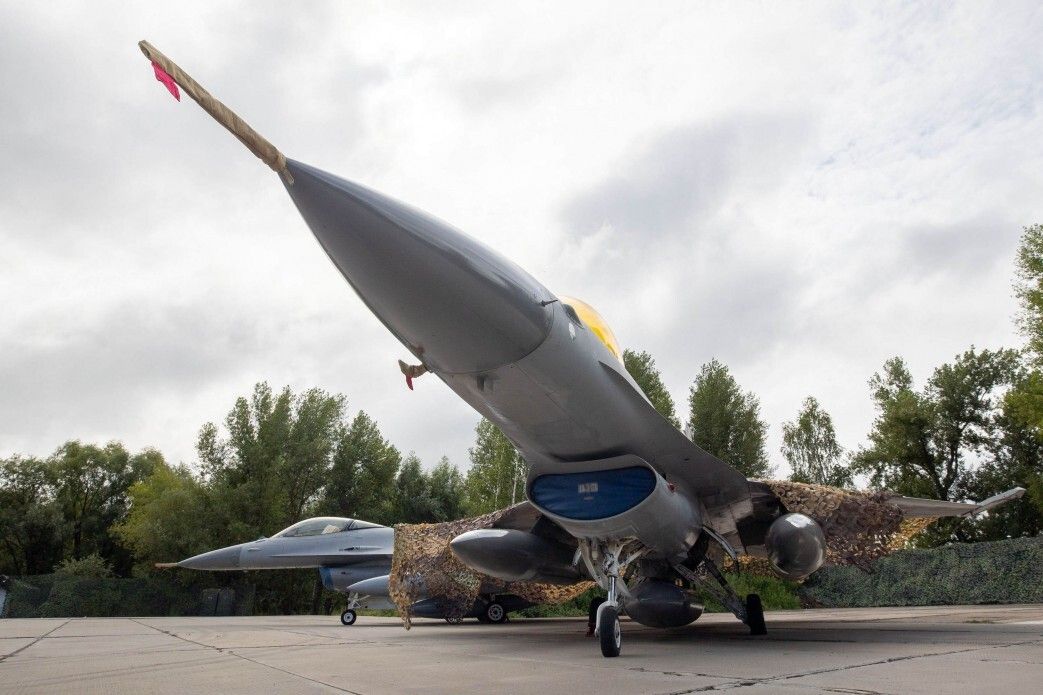Suspected Russian jamming hits von der Leyen's plane during Bulgaria visit

Editor's note: The article was updated with additional comments.
Suspected Russian GPS interference forced European Commission President Ursula von der Leyen's plane to land in Bulgaria using paper maps, the Financial Times (FT) reported on Sept. 1, citing three undisclosed officials.
The European Commission later confirmed the incident, as well as suspicions of Russian involvement.
"We can confirm there was GPS jamming, but the plane landed safe," European Commission spokesperson Arianna Podesta confirmed for the Kyiv Independent.
"We have received information from Bulgarian authorities that they suspect this blatant interference was carried out by Russia," Podesta said, adding that "threats and intimidation are a regular component of Russia’s hostile actions."
Von der Leyen was flying to Plovdiv on Aug. 31 as part of her tour of the EU's eastern member states, discussing Europe's security with leaders of countries in Russia's vicinity.
During an approach to a Bulgarian airport, the aircraft lost navigational aids and, after circling for about an hour, the pilot decided to land the plane using analog maps, the FT reported.
Moscow has not yet commented on the incident.
Glad to hear that you’re planning on using SAFE to build new plants for shells and gunpowder.
— Ursula von der Leyen (@vonderleyen) August 31, 2025
This is exactly what it’s for.
To increase our production capacities.
Ramp up deliveries to Ukraine.
And create good jobs locally ↓ https://t.co/J9q17hsD83
Accompanied by Bulgarian Prime Minister Rosen Zhelyazkov, von der Leyen visited the country's largest state-owned arms producer, VMZ Sopot, praising Bulgaria's booming defense industry.
"Bulgaria is actively contributing to both Ukraine and the European Union's defense security," von der Leyen said on Aug. 31, adding that the Balkan country supplied one-third of Ukraine's arms at the onset of the full-scale Russian invasion.
Western officials have repeatedly warned about Russia carrying out GPS jamming and radar interference in eastern NATO and EU countries, a move seen as part of Moscow's hybrid warfare.
Suspected Russian sabotage operations have surged in Europe since the start of the full-scale invasion of Ukraine in 2022, a wave that seemed to have peaked in 2024.
"We have been seeing quite a lot of such jamming and spoofing activities, notably in the eastern flank of Europe," European Commission spokesperson Anna-Kaisa Itkonen said at a press conference.
Such accidents happen nearly on a daily basis and have "serious impacts on maritime and navigation," she said.
Rather than a "pinpoint action against von der Leyen's plane," the incident "follows a pattern where Russia seeks to signal ability and reach, to project itself as a capable force beyond its borders," says Jan Kallberg, a senior fellow at the Center for European Policy Analysis.
"If confirmed, it is naturally an electronic attack on foreign soil, and should be seen as such, even if it follows a pattern of these GPS jamming attacks along NATO's northern border from Norway to Poland bordering Russia," he adds.
Edward Lucas, a security expert and senior advisor at the Center for European Policy Analysis (CEPA), said the case underscores the "gaps in NATO's escalation ladder."
"Russia is conducting a widespread campaign of sabotage, subversion, disruption, and harassment right across the European NATO members — and we don’t have an answer," Lucas told the Kyiv Independent.
"Our decision-making is based on unanimity and constrained by timidity and expedience. Russia sees this more clearly than we do," the expert added, saying that Europe should respond by seizing Russian assets and funneling them to Ukraine.
Moscow has been previously linked to arson attacks in Poland, Lithuania, and elsewhere, sabotage of underwater infrastructure in the Baltic Sea, and dispatches of incendiary parcels across European countries.
The New York Times reported in August that the sabotage cases dropped this year, possibly due to heightened security measures and a renewed diplomatic push to end the war.













